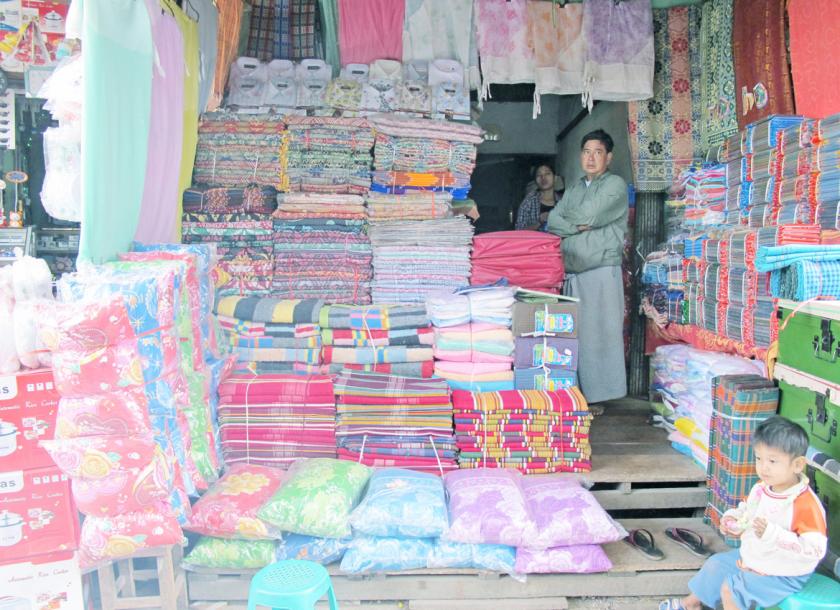Myanmar: New rules, incentives will boost taxpayer numbers
Paying tax is the duty of every Myanmar citizen. Without sufficient tax revenues, the country must rely on resource exports and foreign debt to fund its growing fiscal budget. However, many say the benefits of paying taxes to the government, which typically involve public infrastructure and subsidised healthcare and education, have so far been lacking.
The main reason is the tax collection system in Myanmar. In fact, the practice of paying taxes commenced only in 2011. As such, the number of taxpayers in the country still amounts to just a small percentage of the total population.
And, although punishments for evading taxes have been stipulated, they are seldom enforced. Meanwhile, the process of paying taxes is cumbersome and impractical, which further deters businesses and individuals from doing so.
“Tax evaders are not punished for evading taxes. As such, the perception is that nothing will happen when taxes are not paid, resulting in less taxpayers,” U Nay Lin Zin, an exports-related businessman, told The Myanmar Times.
This has all resulted in a widening inequality gap between those who comply with the Internal Revenue Department’s (IRD) requirements, and those who evade them. Increasingly, businesses that pay taxes are at a disadvantage in terms of cash flows and profitability.
But that’s not all. Businesses say that instead of going after the tax evaders, the IRD has been trying to raise the amount of taxes paid by existing taxpayers. “It would be best if taxes can be equitably collected from every business in each sector. Now, the situation is that some people will pay while others won’t pay their taxes so even if the businesses are in the same sector, the cost of running the business would be different. The result is there is no longer an equal chance for market competition,” said Dr Aung Thein, a businessman and board member of the Union of Myanmar Federal Chamber of Commerce and Industry (UMFCCI).
“This is an unfair practice. The main thing that the government should do is to make every citizen and business a taxpayer. Currently, there are many untaxed areas in the economy,” said Dr. Aung Thein.
No sector left untaxed
U Min Htut, director general at the IRD, said his department is now cooperating with other government departments to punish businesses that have not been paying taxes. “Action is being taken to ensure there are no sectors who avoid paying tax. For example, when you want to start a business, a license has to be obtained from Township Development Committee and other related departments,” he said.
“We’ve made preparations so that only those who have paid their taxes will be given the license. When construction businesses request permits, only those that have paid their taxes will be granted permits.”
Meanwhile, better incentives will be given to encourage tax payments. Under existing tax laws, capital assets such as property purchased with disclosed income after tax will be exempt from property taxes.
In other words, if an individual or businessman retains, say, K50 million after tax, he will be exempt from taxes on capital asset purchases worth K50 million. However, if he buys an apartment worth K60 million, he must still pay a property tax on the additional K10 million after deducting K50 million.
However, assets purchased with undisclosed income will be subject to a tax of 15 percent for assets priced up to K30 million, 20pc for assets priced between K30 million and K100 million and 30pc for those above K100 million.
Meanwhile, the IRD may also encourage a self-monitoring system under which consumers are encouraged to demand tax-stamped receipts when eating at restaurants and to report those who do not cooperate. This will provide more incentive for both consumers and food and beverage establishments to comply with commercial tax requirements.
In addition, the IRD will also begin levying tax on revenue generated on digital platforms such as social media, websites and blogs starting next year, U Min Htut said.
Fiscal deficit
The IRD is raising its efforts to raise tax revenues at a time when fiscal spending is rising. For the first six months of the 2017-18 fiscal year, tax revenues amounted to K2.2 trillion. The government is expecting to collect some K6.5 trillion in taxes this fiscal year. This includes commercial tax, stamp duties and the Aung Bar Lay Lottery tax.
By raising tax revenues, the government is aiming to reduce the total amount of foreign and Central Bank loans taken, as this could result in costly interest repayments and high inflation.
On the whole, tax revenues are an important means of expanding and developing the economy. But it is also essential for the tax system to be fair and beneficial to taxpaying citizens. As such, appropriate punishments for tax evaders as well as the types of incentives given to encourage tax compliance are also a crucial part of a successful tax system.
Source: https://www.mmtimes.com/news/new-rules-incentives-will-boost-taxpayer-numbers.html


 Thailand
Thailand




